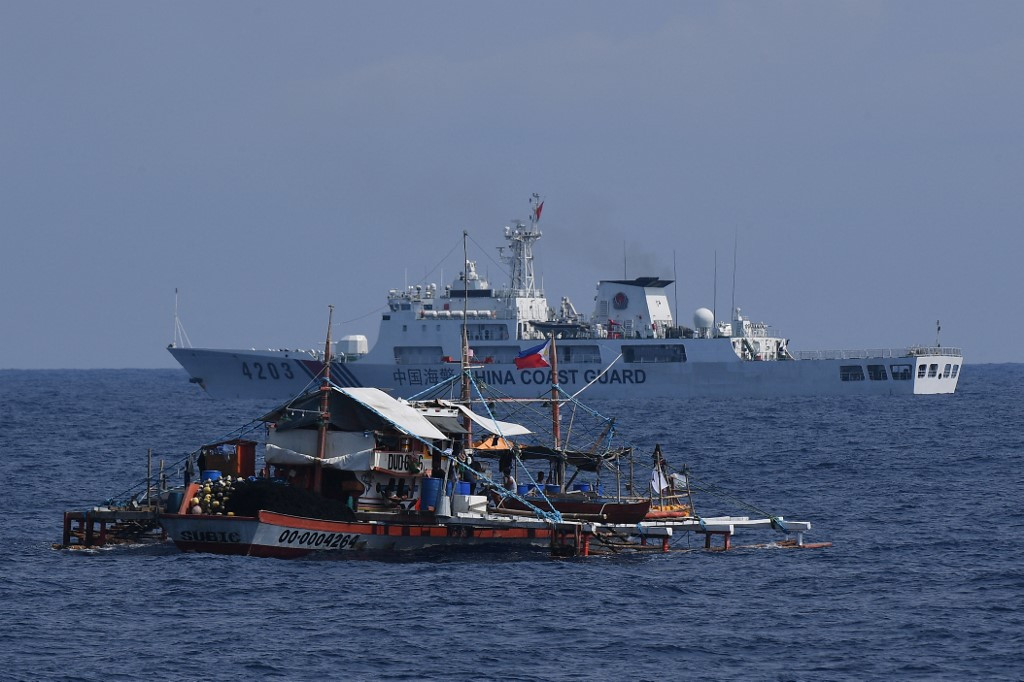Popular Reads
Top Results
Can't find what you're looking for?
View all search resultsPopular Reads
Top Results
Can't find what you're looking for?
View all search resultsASEAN and defense pact
ASEAN leaders should talk loudly, clearly and in unison about the potential of the Philippines-Japan military pact to ruffle many feathers in the region and beyond.
Change text size
Gift Premium Articles
to Anyone
L
ike other ASEAN members, the Philippines has the right to protect its sovereignty and national interests. This includes forming a bilateral defense pact, as it did with Japan on Monday.
Japanese Foreign Minister Yoko Kamikawa and Philippine Defense Secretary Gilberto Teodoro inked the Reciprocal Access Agreement (RAA) in Manila. Philippine President Ferdinand Marcos Jr. witnessed the signing without the attendance of Japanese Prime Minister Fumio Kishida.
The Marcos government apparently did not inform or consult fellow ASEAN members about the defense treaty beforehand, which it was supposed to do given the impact of the agreement on the region. The signing had been well anticipated, however, as President Marcos and PM Kishida had announced the plan in November.
Neither has there been any initiative from Manila to send a special envoy to brief other ASEAN leaders about the new alliance, at least as a matter of diplomatic courtesy.
Surprisingly all the regional bloc leaders, including President Joko “Jokowi” Widodo, have been silent about the Manila-Tokyo deal, despite the potentially overarching consequences of the bilateral military cooperation for ASEAN’s stability and peace.
This show of indifference is regrettable, considering the escalating tensions in the South China Sea and the Indo-Pacific. In the context of the growing hostility between the Philippines and China in the contested waters recently, the military agreement will only create a new problem rather than a solution. And sooner or later, whether we like it or not, ASEAN will be dragged into the conflict.
True, Article 2 on the Principles of the 2007 ASEAN Charter says all members shall act according to mutually agreed principles including “respect for the right of every Member State to lead its national existence free from external interference, subversion and coercion”.
But the Charter also mandates “enhanced consultations on matters seriously affecting the common interest of ASEAN”. This means the Philippines’ ASEAN neighbors have the right to be informed about the purpose and context of the military pact.
This is also the case for Marcos’ decision to boost Manila’s defense alliance with Washington, including the opening of more military bases for the United States.
According to Kyodo, once the agreement takes effect, Japan’s Self Defense Force (SDF) will be able to participate as a full member in the large-scale Balikatan military exercise, which the Philippines and the US have conducted annually in Philippine waters. The SDF previously joined the drill as an observer.
In their joint conference after signing the agreement, the defense ministers of the two countries expressed serious "serious concern over the dangerous and escalatory actions by China" in the South China Sea.
As expected, China reacted harshly to the military agreement. Chinese Foreign Ministry spokesman Lin Jian stated that the deal "should not undermine regional peace and stability" or "target any third party".
"The Asia-Pacific region does not need military groups, let alone small circles that provoke bloc confrontation and instigate a new Cold War," Lin said, adding that any actions that damage regional unity and cooperation will "arouse the vigilance and common opposition" of the people in the region.
Chinese coast guard vessels have repeatedly flexed their muscles against the Philippine navy near disputed shoals. China has claimed sovereignty rights over nearly the whole South China Sea and does not care about the decision of a United Nations tribunal that dismissed China’s claim.
Japanese media also reported that Chinese vessels have repeatedly encroached on Japanese territorial waters around the Senkaku Islands, a group of uninhabited islets controlled by Tokyo in the East China Sea that are claimed by Beijing, which calls them Diaoyu.
ASEAN’s passivity will only leave the region vulnerable to becoming a theater of competition, if not war, between great powers. ASEAN leaders should talk loudly, clearly and in unison about the potential of the Philippines-Japan military pact to ruffle many feathers in the region and beyond.
The leaders need to remind each other about the old commitment to keep the region as a zone of peace and neutrality that outside powers must respect.










